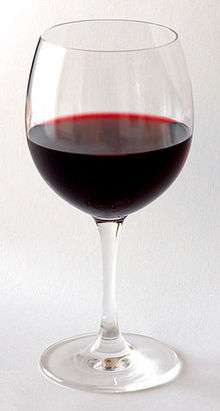Definify.com
Webster 1913 Edition
Red
Red
,Red
,Red
Webster 1828 Edition
Red
RED
,RED
,Definition 2026
Red
red
red
English


Adjective
red (comparative redder, superlative reddest)
- Having red as its color.
- The girl wore a red skirt.
- Shakespeare
- Your colour, I warrant you, is as red as any rose.
- (of hair) Having an orange-brown colour; ginger.
- Her hair had red highlights.
- (card games, of a card) Of the hearts or diamonds suits. Compare black (“of the spades or clubs suits”)
- I got two red queens, he got one of the black queens.
- (often capitalized) Left-wing, especially socialist or communist.
- "Only Nixon could go to China" was the refrain of conventional wisdom during Richard Nixon’s 1972 official visit to Mao Tse-tung’s regime. Nixon’s anti-communist credentials, however dubious, provided useful camouflage as he opened diplomatic relations with Red China and made breathtaking concessions that an undisguised liberal couldn’t get away with.
- (US, modern) Supportive of or dominated by the political party represented by the color red, especially the U.S. Republican Party.
- a red state
- a red Congress
- (chiefly derogatory, offensive) Amerind; relating to Amerindians or First Nations
- (US, modern) Of, pertaining to, or run by (a member of) the political party represented by the color red, especially the U.S. Republican Party.
- a red advertisement
- (Britain) Supportive of the Labour Party.
- (politics) Related to the Social Democratic Party of Germany.
- the red-black grand coalition
- (astronomy) Of the lower-frequency region of the (typically visible) part of the electromagnetic spectrum which is relevant in the specific observation.
- (particle physics) Having a color charge of red.
Synonyms
- (color):: scarlet, crimson, vermilion, ruby-red, cherry-red, cerise, cardinal-red, carmine, wine-red, claret-red, blood-red (sanguine), coral-red, cochineal-red, rose-red (rosy, damask), brick-red, maroon, rust-red (rusty), rufous-red, gules-red, rufescent.
Antonyms
Derived terms
Translations
|
|
|
|
|
|
Noun
red (countable and uncountable, plural reds)
- (countable and uncountable) Any of a range of colours having the longest wavelengths, 670 nm, of the visible spectrum; a primary additive colour for transmitted light: the colour obtained by subtracting green and blue from white light using magenta and yellow filters; the colour of blood, ripe strawberries, etc.
-
red colour:
-
- (countable) A revolutionary socialist or (most commonly) a Communist; (usually capitalized) a Bolshevik, a supporter of the Bolsheviks in the Russian Civil War.
- (countable, snooker) One of the 15 red balls used in snooker, distinguished from the colours.
- (countable and uncountable) Red wine.
- 1977, Billy Joel (music), “Scenes from an Italian Restaurant”, in The Stranger:
- A bottle of red, a bottle of white / It all depends upon your appetite / I'll meet you any time you want / in our Italian restaurant.
- 2005, Jeffrey P. Landry, Temptation Mango:
- He produced a wine key from his jacket pocket and effortlessly removed the cork from the bottle of red.
-
- (slang) The drug secobarbital; a capsule of this drug.
- 1971, Hunter S. Thompson, Fear and Loathing in Las Vegas (Harper Perennial 2005), page 202:
- The big market, these days, is in Downers. Reds and smack—Seconal and heroin—and a hellbroth of bad domestic grass sprayed with everything from arsenic to horse tranquillizers.
- 1971, Hunter S. Thompson, Fear and Loathing in Las Vegas (Harper Perennial 2005), page 202:
- (informal) A red light (a traffic signal)
- (Ireland, Britain, beverages, informal) red lemonade
- (particle physics) One of the three color charges for quarks.
- (US, colloquial, uncountable) chili con carne (usually in the phrase "bowl of red")
- 1982, The Rotarian (volume 140, number 1, page 39)
- Houston visited a home in an early pioneer settlement where he was offered a bowl of red. Houston eagerly took his first large spoonful. His eyes watering, he spat out his bite […]
Derived terms
Translations
|
|
|
See also
| Colors in English · colors, colours (layout · text) | ||||
|---|---|---|---|---|
| red | green | yellow | cream | white |
| crimson | magenta | teal | lime | pink |
| indigo | blue | orange | gray, grey | violet |
| black | purple | brown | azure, sky blue | cyan |
- (reds) red; blood red, brick red, burgundy, cardinal, carmine, carnation, cerise, cherry, cherry red, Chinese red, cinnabar, claret, crimson, damask, fire brick, fire engine red, flame, flamingo, fuchsia, garnet, geranium, gules, hot pink, incarnadine, Indian red, magenta, maroon, misty rose, nacarat, oxblood, pillar-box red, pink, Pompeian red, poppy, raspberry, red violet, rose, rouge, ruby, ruddy, salmon, sanguine, scarlet, shocking pink, stammel, strawberry, Turkey red, Venetian red, vermillion, vinaceous, vinous, violet red, wine (Category: en:Reds)
- primary colour
References
- “red” in Douglas Harper, Online Etymology Dictionary (2001).
- red in Webster’s Revised Unabridged Dictionary, G. & C. Merriam, 1913
External links
Etymology 2
From the archaic verb rede.
Verb
red
- (archaic) simple past tense and past participle of rede
Etymology 3
From Middle English redden, from Old English hreddan (“to save, to deliver, recover, rescue”), from Proto-Germanic *hradjaną.
Verb
red (third-person singular simple present reds, present participle redding, simple past and past participle redded)
- (colloquial) Alternative spelling of redd
References
- “redd” in Douglas Harper, Online Etymology Dictionary (2001).
- red in Webster’s Revised Unabridged Dictionary, G. & C. Merriam, 1913
Etymology 4
From Middle English, from Middle Low German, compare Dutch redden.
Verb
red (third-person singular simple present reds, present participle redding, simple past and past participle redded)
- (transitive, Pennsylvania) Alternative spelling of redd
References
- “redd” in Douglas Harper, Online Etymology Dictionary (2001).
Anagrams
Dutch
Pronunciation
- Rhymes: -ɛt
- IPA(key): /rɛt/
Verb
red
Anagrams
Manx
Etymology
Noun
red m (genitive singular red, plural reddyn)
- thing, object, item
- Cha daink reddyn dy mie.
- Things didn't pan out well.
- Cha nel shen deyr son y leagh t'er reddyn nish.
- That's not dear as things go.
- Kanys ta reddyn goll er?
- How are things?
- Son y chied red, t'eh ro vie dy ve firrinagh.
- For one thing, it is too good to be true.
- Ta reddyn couyral.
- Things are getting better.
- Ta reddyn ennagh ayn nagh vel niart ain orroo.
- There are some things we cannot help.
- Ta shen red aitt.
- That's a curious thing.
- T'eh yn un red.
- It amounts to the same thing.
- T'eh çheet stiagh rish yn red elley.
- It falls in with the other thing.
- She'n red hene eh y traa shoh.
- It's the real thing this time.
- Va shen yn red cooie dy ghra.
- That was the appropriate thing to say.
- Cha daink reddyn dy mie.
- matter
Serbo-Croatian
Etymology
From Proto-Slavic *rędъ.
Pronunciation
- IPA(key): /rêːd/
Noun
rȇd m (Cyrillic spelling ре̑д)
- row
- (mathematics) series
- konvergentan red ― Convergent series
- divergentan red ― Divergent series
- queue
- order (of magnitude)
- order (arrangement, disposition)
- line (of customers)
- (chess) rank
Declension
References
- “red” in Hrvatski jezični portal
Slovene
Etymology 1
From Proto-Slavic *rędъ.
Pronunciation
- IPA(key): /ˈréːt/
- Tonal orthography: rẹ̑d
Noun
réd m inan (genitive réda, nominative plural redôvi or rédi)
- order (arrangement, disposition)
Declension
Etymology 2
Pronunciation
- IPA(key): /ˈréːt/
- Tonal orthography: rẹ̑d
Noun
réd f (genitive redí, nominative plural redí)
- This term needs a translation to English. Please help out and add a translation, then remove the text
{{rfdef}}.
Declension
Spanish
Pronunciation
- IPA(key): [ˈreð]
- Rhymes: -eð
Etymology
Noun
red f (plural redes)
- (hunting, tools) web, mesh
- (fishing) net
- 1911, Benito Pérez Galdós, De Cartago a Sagunto : 13
- Si se consigue pescar a Dorregaray con cuarenta mil duretes, a Cástor Andéchaga con veinticinco mil, y a otros tales, habremos hecho más que cogiendo en la red a los bicharracos de menor cuantía.
- 1911, Benito Pérez Galdós, De Cartago a Sagunto : 13
- (arachnid) spiderweb
- trap, snare
- (communication, transport) net, network
- red de carreteras, highway network
- red de radiodifusoras, radio broadcasters network
- red televisiva, TV broadcasting network
- (sports) net, goal
- (computing) Web, Internet
